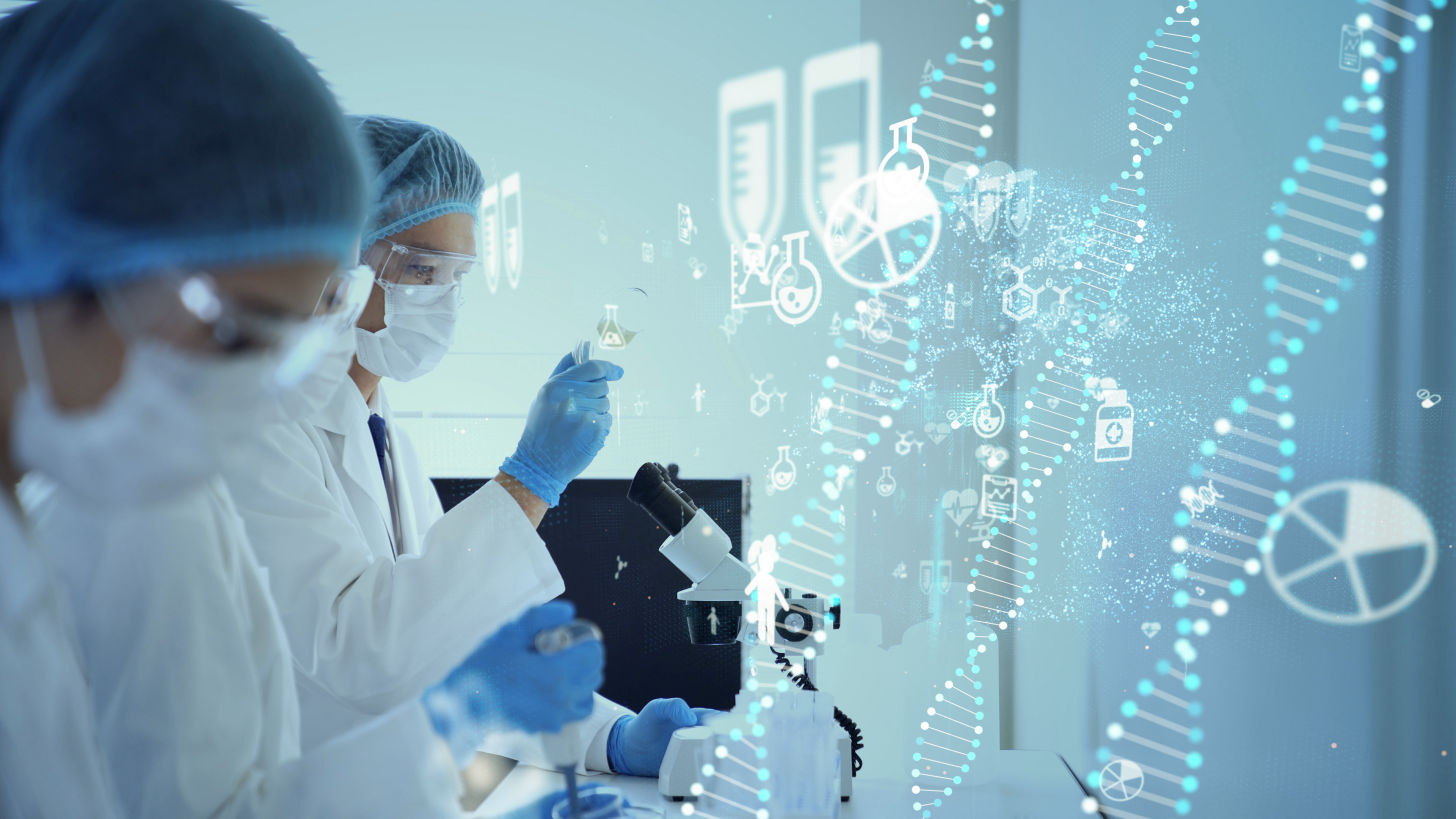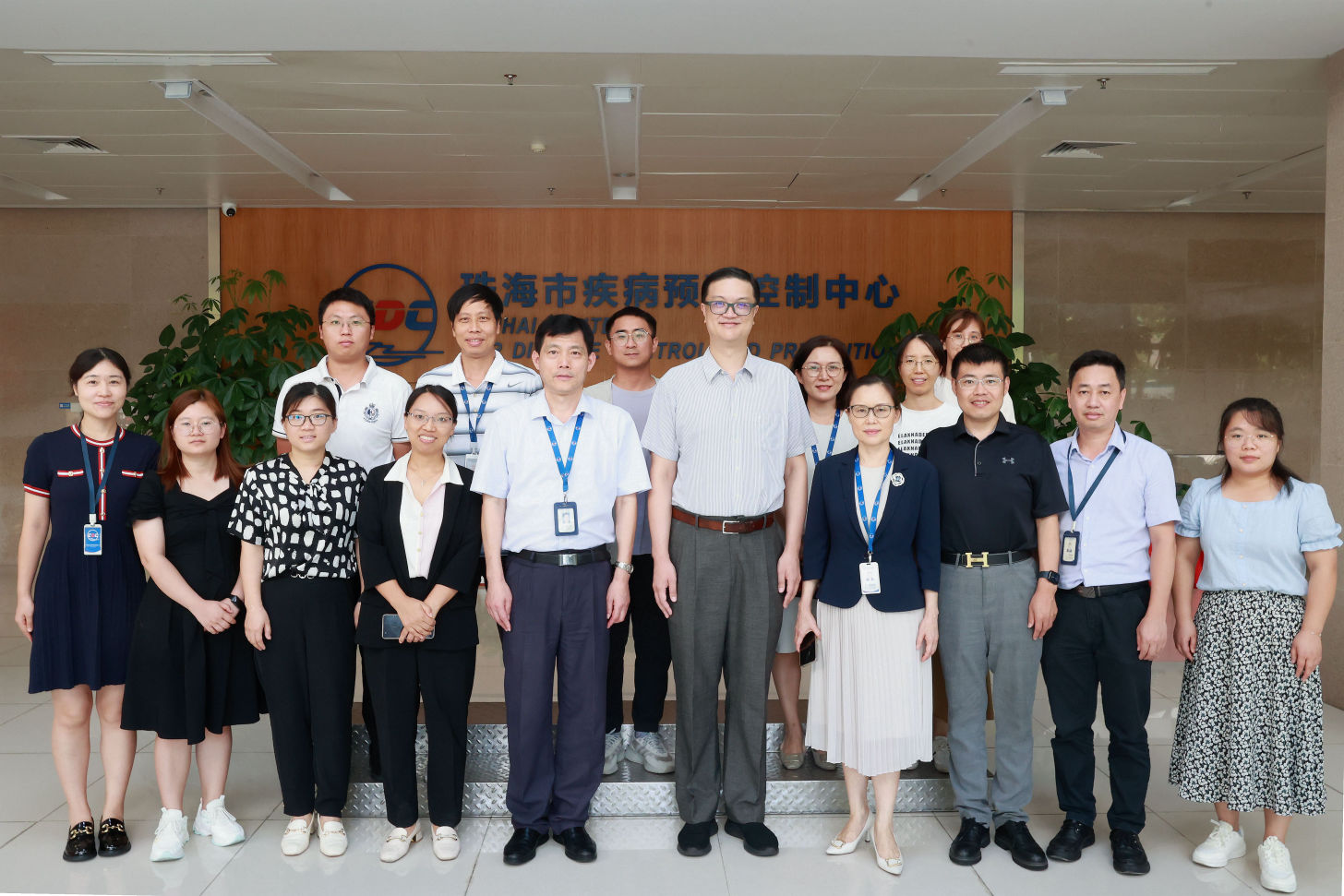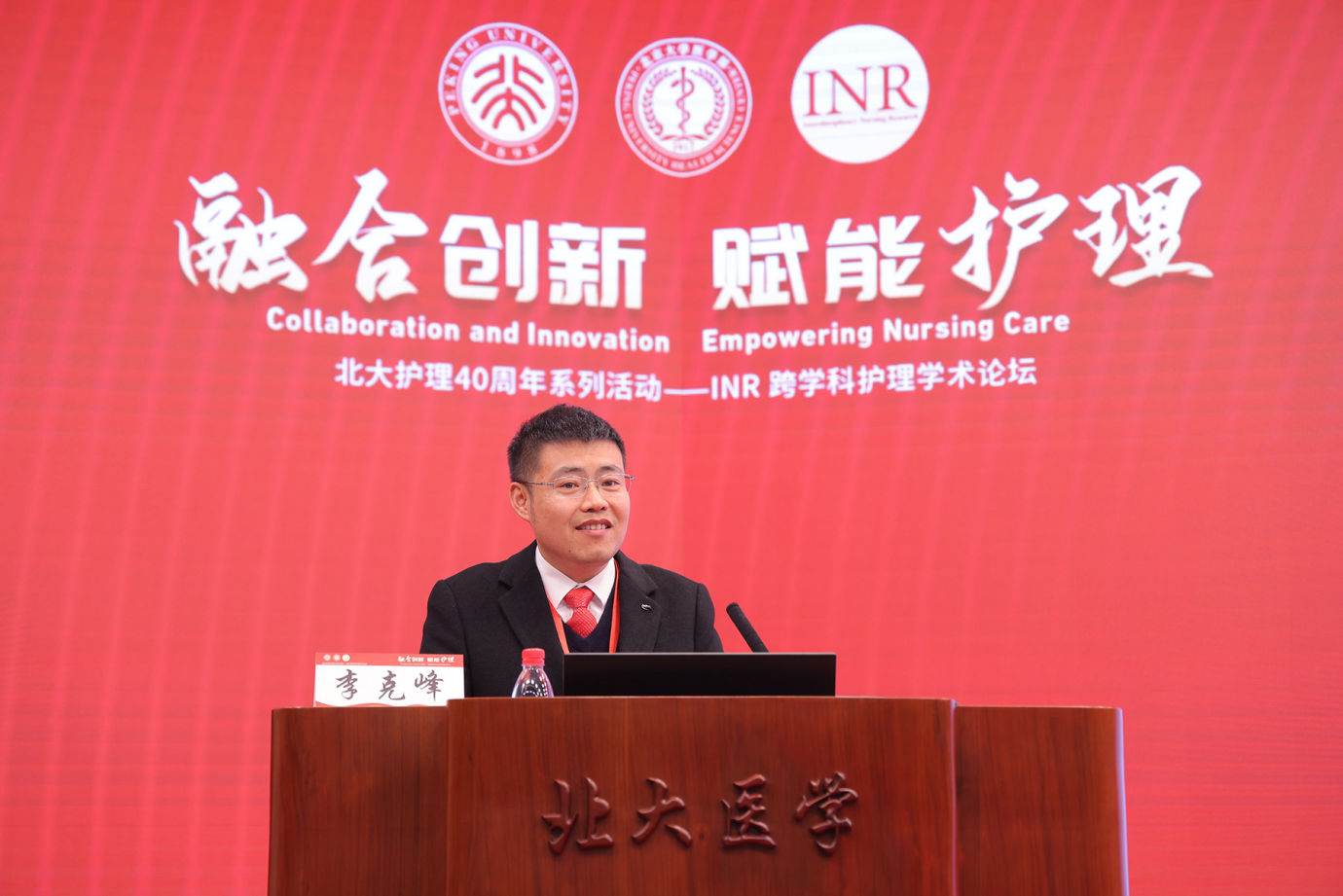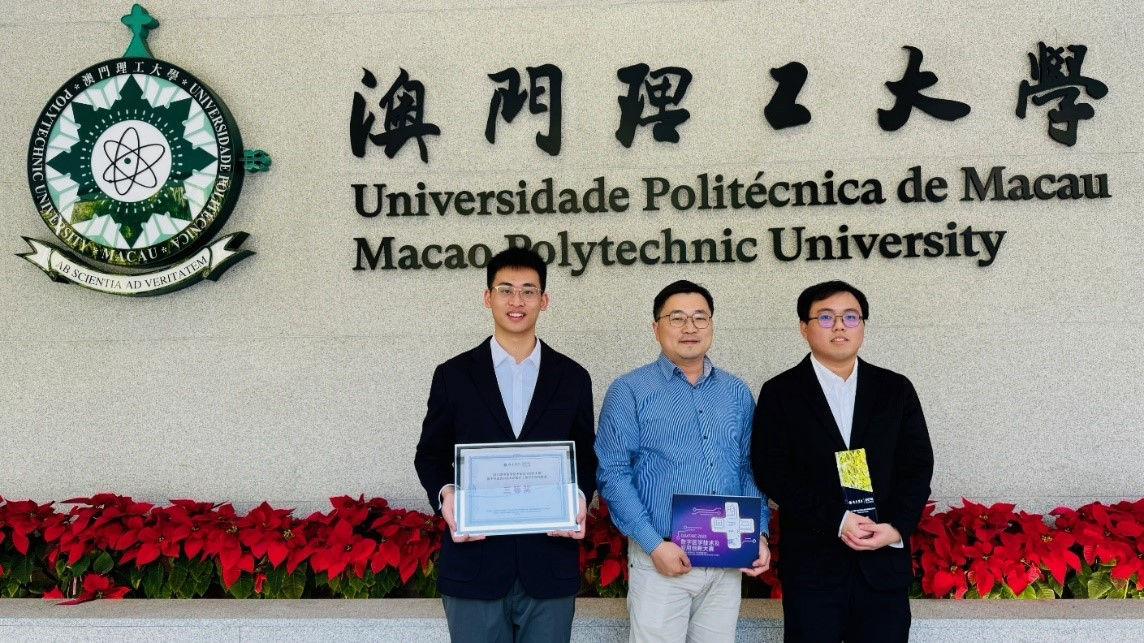Smart Pharmacopoeiaai Enhanced Discovery Of Anti-Tuberculosis Drugs

In the perpetual competition for survival, both humans and bacteria are in a constant state of evolution to better suit their changing environments. Tuberculosis, a disease with roots stretching back to ancient times, has been no stranger to this evolutionary dance. Thanks to scientific and medical advancements, anti-tuberculosis drugs have greatly reduced the disease’s spread and lethality. Yet, Mycobacterium tuberculosis is developing resistance to these traditional drugs at an alarming rate, underscoring the pressing need for innovative treatment methods. Macao Polytechnic University spearheaded the launch of the Centre for Artificial Intelligence Driven Drug Discovery (AIDD) in 2022. This centre is at the forefront of medical research, using artificial intelligence (AI) technology to design new drugs. Working with partners from academia and industry, the AIDD team is on a mission to find new substances that can fight tuberculosis through AI driven drug discovery, hoping to create better treatments for tuberculosis sooner.
AI’s Role in Tuberculosis Treatment
The approach to drug design and development entails the alignment and systematic testing of various chemical structures to assess their impact on pathogens. The aim is to sift through and identify molecules that can effectively fight disease while posing no harm to humans. Once potential drug molecules are pinpointed, they advance to clinical trials to determine the most promising candidates for drug manufacturing. AI acts as a catalyst in the process. AIDD collaborates with Lanzhou University and Zhuhai’s Third People’s Hospital to form a research team. This team harnesses advanced AI technology for computer simulations that delve into the drug resistance mechanisms of Mycobacterium tuberculosis. Utilising a combination of ensemble docking-based virtual screening and biological assays, they swiftly identify compounds with the potential to fight tuberculosis effectively.
The research team zeroes in on the InhA enzyme from Mycobacterium tuberculosis, leveraging AI for the virtual screening and analytical study of this target. InhA plays a pivotal role in the synthesis of the bacterium’s cell wall, functioning akin to a protective “gatekeeper” for its defences. By inhibiting this enzyme, the growth of tuberculosis bacteria can be effectively curtailed. The team employs a suite of sophisticated techniques, including machine learning, deep learning, and data mining, to perform molecular docking across an extensive compound database. Their intricate computer simulations forecast how potential compounds interact with the InhA enzyme. This innovative approach streamlines the identification of inhibitors for InhA, pinpointing promising drug candidates from a vast array of chemical substances.

Optimising the Efficacy of Tuberculosis Compounds
Identifying compounds capable of inhibiting the InhA enzyme is an important first step, but it’s not sufficient to deem these compounds safe for human use. Before advancing to pharmaceutical development, researchers must confirm that these substances are not toxic to humans. After pinpointing potential drug candidates via virtual screening, the research team undertakes a battery of biological assays. These empirical tests measure the candidate drugs’ effectiveness in inhibiting the InhA enzyme, corroborating the virtual screening outcomes and evaluating their potential as viable medications.
Moving from virtual models to tangible experiments marks a substantial leap in the research process. Out of the myriad compounds scrutinised in the digital space, the research team narrowed the field down to 34 promising candidates for hands-on laboratory evaluation. This focused strategy streamlines the experimentation to a curated batch of targeted compounds, yielding cost savings in experimental expenses and hastening the identification of lead compounds. Following thorough testing, four compounds emerged with potent inhibitory effects on the InhA enzyme. Among these, one compound distinguished itself as a particularly promising candidate, heralding the potential for a groundbreaking therapeutic addition to the pharmaceutical toolkit in the fight against tuberculosis.
After pinpointing potential drug candidates, researchers dedicate themselves to refining these compounds to bolster their therapeutic potential. Throughout their investigation, the team utilised molecular dynamics simulations to meticulously calculate and scrutinise the binding configurations and energies involved between the compounds and the InhA enzyme. This advanced simulation technology grants researchers the ability to monitor the exact molecular movements involved in the binding interaction, akin to viewing a detailed slow-motion sequence. Such granular observation of how potential compounds interact with the InhA enzyme deepens the understanding of their underlying mechanisms. Through precise molecular-level analysis, the team continuously improves the pharmacological attributes of the compounds, enhancing their effectiveness as future treatments.
A One-stop Drug Development Platform Through Synergistic Collaboration
The synergy between academic institutions and industry is essential for merging artificial intelligence with drug development, drawing on the distinct expertise of each sector. In this collaborative effort, MPU contributes an AI-based platform for drug discovery, while Zhuhai’s Third People’s Hospital brings clinical acumen, tuberculosis diagnostic capability, and antimicrobial drug assessment to the table. United in purpose, the team has forged an effective continuum, ranging from the discovery of lead compounds to laboratory validation, all with the goal of enhancing tuberculosis treatments and promoting public health worldwide.
Since its inception, AIDD has assembled a team of eminent scientists from intersecting disciplines, including AI, computational chemistry, computational biology, and pharmacology. This interdisciplinary collaboration has yielded a cutting-edge AI platform for novel drug development, placing the centre at the forefront of pharmaceutical research. With access to extensive libraries of drug-like compounds for virtual screening, the centre empowers researchers to quickly pinpoint promising candidates. This method dramatically streamlines the drug discovery process, conserving time and resources that would traditionally be allocated to the synthesis and empirical analysis of countless compounds.

AIDD Visited Zhuhai Centre for Disease Control and Prevention to promote scientific research cooperation and exchanges
The academic staff of AIDD actively participates in international forums, presenting their latest scientific research findings. Recently, Associate Professor Li Kefeng from AIDD was invited to deliver a lecture at the Interdisciplinary Nursing Academic Forum entitled “Collaboration and Innovation, Empowering Nursing Care,” hosted by the School of Nursing at Peking University. He also participated in the “2023 Frontier Disciplines Forum,” co-hosted by the National Natural Science Foundation of China and the Macao Science and Technology Development Fund. In the forum, he engaged in in-depth discussions on the new generation of evidence-based medicine and novel strategies for the action of traditional Chinese medicine. The events attracted participation from nursing professionals and researchers from local and international higher education institutions, as well as clinical organisations, providing scientific research support to the broader healthcare industry.
At the helm of AIDD stands Professor Liu Huanxiang, a distinguished academic driving innovation in AI-assisted drug target discovery, biomacromolecular structures, and the design of functional molecular analogues. Her endeavours have yielded significant advancements in virtual screening, molecular generation, and the prediction of molecular properties. Her team has been instrumental in refining virtual screening technologies, likened to crafting a precise key for the molecular locks within bacterial cells. Harnessing the power of advanced AI methods, they have charted new routes for uncovering groundbreaking anti-tuberculosis medications.

Associate Professor Li Kefeng of AIDD delivered a keynote speech at the Interdisciplinary Nursing Academic Forum
Cultivating AI Innovators
AI driven drug discovery requires a blend of expertise from multiple disciplines, including big data, chemistry, pharmacy, medicine, and biology. This interdisciplinary approach necessitates that researchers possess a broad range of knowledge and skills. To cultivate such talent, MPU has developed a comprehensive strategy. It offers specialised degree programmes, provides ample research opportunities, and actively disseminates scientific knowledge to nurture innovative young technologists.
MPU has introduced Macao’s first Doctor of Philosophy in Artificial Intelligence Driven Drug Discovery programme. This programme is designed to cultivate quality interdisciplinary talent in the fields of biomedical sciences and AI technology. Here, students are trained to become AI detectives, employing state-of-the-art algorithms to unravel the mysteries of molecular interactions. Their mission is to seek out novel drug candidates that can stand up to the toughest pathogens. The programme arms students with a comprehensive, multidisciplinary skill set, encompassing drug discovery, AI, molecular simulation, bioinformatics, cheminformatics, medicinal chemistry, and pharmacology. This pioneering educational initiative contributes to the advancement of the health and well-being of Macao, the Greater Bay Area, and the broader community.
A team of Master’s students in Big Data and Internet of Things from MPU, composed of Yang Qimin, Chen Haixin, and Wang Rongsheng, and guided by their advisor, Associate Professor Tan Tao from the Faculty of Applied Sciences, secured third place in the 2023 Digital Medical Technology and Application Innovation Competition. Competing in the medical human-machine interaction category focused on generative AI, the team developed cutting-edge technologies for healthcare applications. These included multimodal large models, thought chains, and knowledge infusions used to create interactive platforms for doctors, patients, and health management. Out of nearly one hundred teams, they enhanced medical question-answering techniques to effectively train their model. Their innovative medical language model, which combines traditional Chinese and Western medicine principles, showcased exceptional performance. This contribution not only advances large medical language models but also elevates the quality of medical diagnostics and treatments.
MPU is extending the reach of AI education to high school students in Macao by hosting science popularisation sessions and research activities in the realm of AI-driven drug discovery. These activities allow students to explore state-of-the-art laboratories, gain insights into their operations and equipment, stay abreast of the latest AI advancements, and delve into computer technology through both learning and hands-on practice. Students get to immerse themselves in the daily work and groundbreaking discoveries of active researchers. Mentored by faculty from AIDD, students undertake tasks such as literature review, data mining and cleansing, the construction of AI models, and data analysis. These activities are thoughtfully crafted to spark students’ curiosity and nurture their aptitude for scientific inquiry.

Faculty and students secured third place in the 2023 Digital Medical Technology and Application Innovation Competition
AI is revolutionising drug design and the broader field of medicine, with its most cutting-edge application currently assisting in disease diagnosis. AI is poised to expand into clinical applications and personalised medicine. According to Professor Liu Huanxiang, it is rapidly advancing in the area of drug design. Cultivating talent is crucial for sustaining industry growth and enhancing research quality. “Academic units place a strong emphasis on student training strategies. Firstly, doctoral students are typically guided by two mentors, which enhances their ability to conduct interdisciplinary research. Secondly, we encourage students to engage in cross-disciplinary collaborations, such as working on projects with institutions in different regions or participating in international academic conferences to build broader networks of communication and cooperation,” she stated. She believes that drug discovery, like talent development, is a long and significant journey where steadfast progress can lead to more breakthroughs and discoveries, offering better treatment options for disease.
The full article of relevant research at MPU: